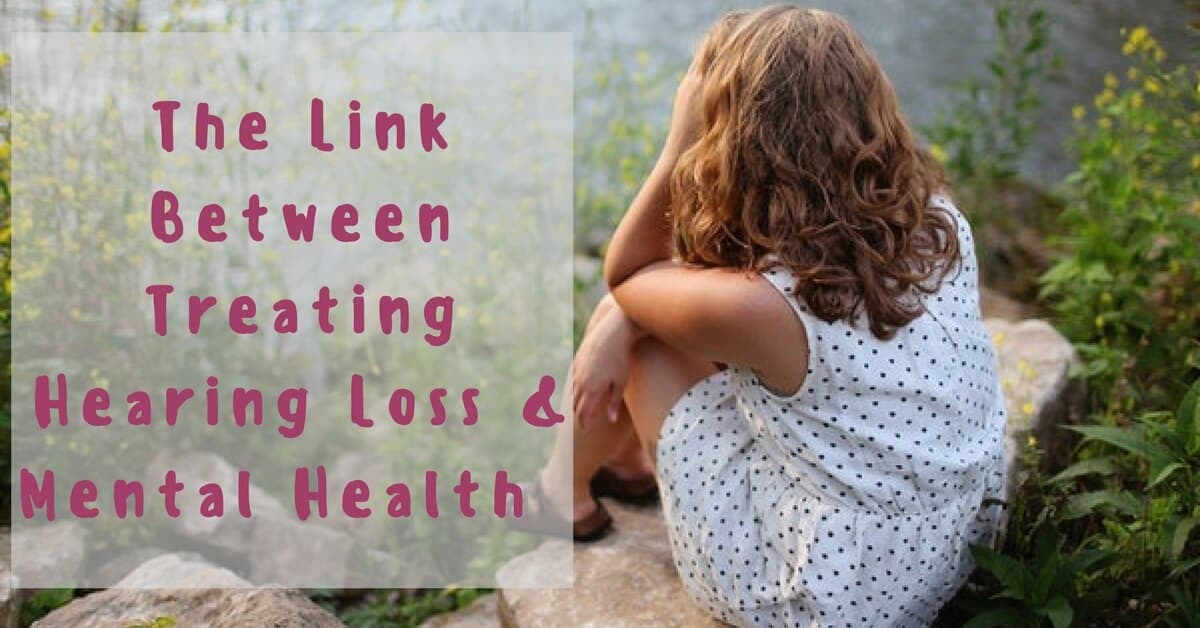Although hearing loss is commonly associated with aging, it affects people of all ages, in vast numbers. And with hearing loss comes a multitude of mental health risks, especially if the hearing loss is left untreated. In a 2014 study, it was found that hearing loss increases the risk of depression in adults of all ages, but is most problematic in 18-to 69-year olds.
In a separate study, carried out in Italy, it was revealed that working adults from 35 to 55 years old with untreated mild to moderate hearing loss tended to experience more depression, anxiety and interpersonal struggles than those without hearing issues.
The link between untreated hearing loss and depression is troubling, but the good news is that hearing aids have been proven to provide relief. Research has shown that negative mental health symptoms are alleviated in those who take steps to treat their hearing loss with hearing aids.
5 ways that treating your hearing loss will improve your mental health:
Being able to hear those lost frequencies again is wonderful, but there’s more to it than that. Here are just a few reasons why treating hearing loss helps to safeguard one’s happiness and overall well-being.
- Living with untreated hearing loss lowers quality of life. The research is clear: when hearing loss goes unaddressed, a person’s relationships and mental health suffer. Hearing loss is often connected with other physical and mental health issues, such as reduced safety and mobility, social withdrawal, psychological pain, and even an increased risk of cognitive decline and dementia. When it comes to preserving happiness and a good quality of life, treating their hearing loss is one of the most important things a person can do.
- Hearing aids help to stabilize moods. Untreated hearing loss, especially loss that is severe, can result in a number of negative feelings and a generally depressed mental state. People who live with serious untreated hearing loss can often feel frustrated, anxious, angry, stressed, exhausted, and isolated. Fortunately, research shows that once a person takes steps to treat their hearing loss with hearing aids, their mental health rebounds dramatically. Many people report greater emotional stability, a better sense of self-worth, safety and independence, and an easier time engaging socially. In short, they see a marked improvement in their overall quality of life.
- Treating hearing loss is a confidence booster! A lack of confidence can erode a person’s ability to do the things they once enjoyed, to be effective at work, to maintain relationships, and to simply feel content in their lives. While the communication difficulties that stem from untreated hearing loss can destroy a person’s confidence, hearing aids can go a long way towards rebuilding it. Research has proven that many people feel less self-critical and more assured in their daily interactions when using hearing aids to treat their hearing loss–even those whose hearing loss was mild.
- Hearing aids restore the pathways of communication. Friendships, family relationships, romantic partnerships, interpersonal relationships at work–all depend on good communication. Untreated hearing loss can cause tensions to build and walls to form between the hard of hearing person and the most important people in their lives, leading to increased isolation and social withdrawal. The good news is that treating hearing loss has been proven to restore channels of communication and rebuild personal connections. In a Better Hearing Institute study, almost 7 out of 10 participants felt their ability to communicate in most situations had improved, and over half said that their relationships at home, in social settings and at work had been enriched as a result.
- Hearing aids are not what they used to be. The technological advances of recent years have revolutionized modern hearing devices, making them more comfortable, discreet, and multi-functional than they have ever been. Many in-the-canal devices are nearly invisible, and some are even rechargeable. Hearing aids have also gotten much better at honing in on speech and reducing background noise, as well as allowing for more personalization options to suit your needs in different acoustic environments. And last but certainly not least, the best hearing aids of today are wireless, meaning that you can connect effortlessly to your favorite devices and have music, conversations, TV and more streamed directly to your ears, at the perfect volume. In a nutshell, hearing aids today are designed to help people live the active, healthy, connected lifestyles they want to be living, without worry.
Visit Us at Desert Valley Audiology
There’s no reason to live with untreated hearing loss! If you’ve experienced changes in your hearing, contact us at Desert Valley Audiology to schedule a consultation.

